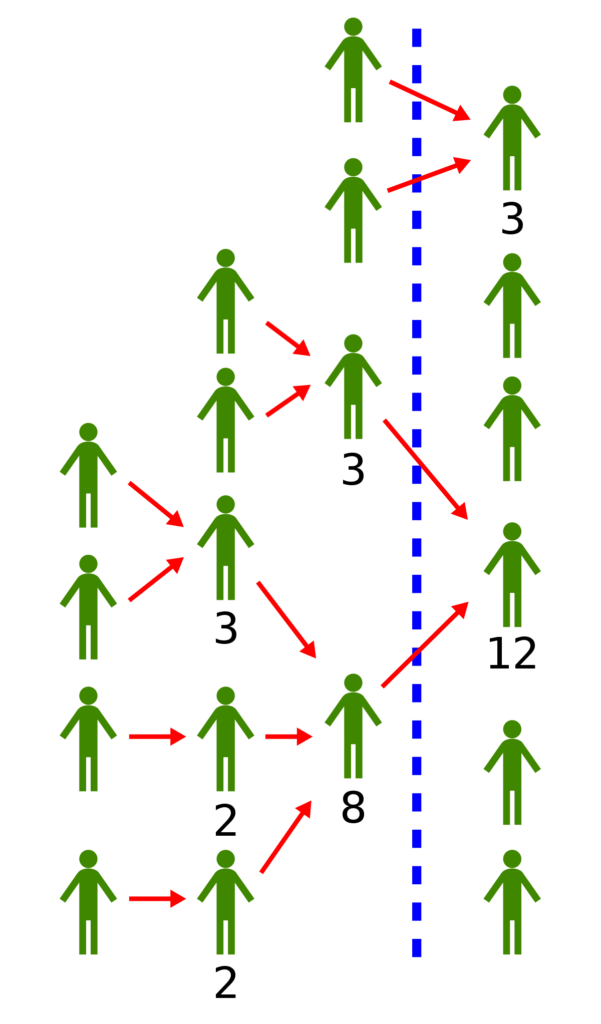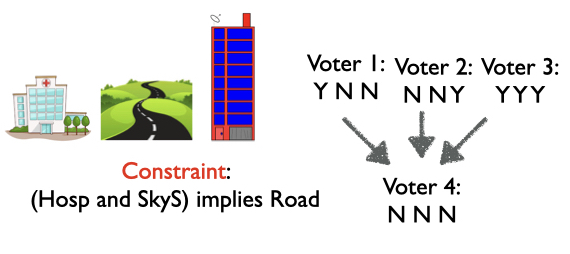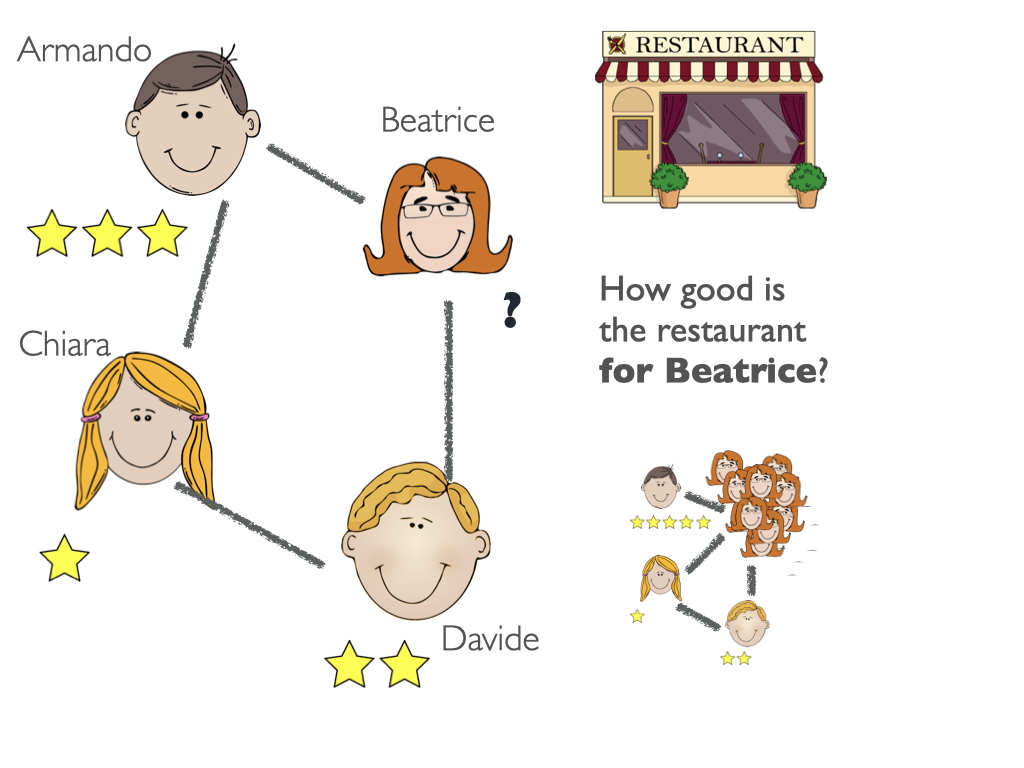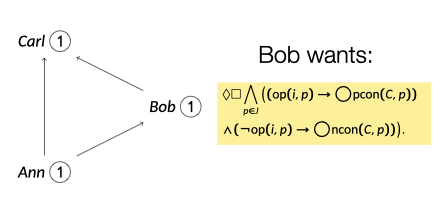
In liquid democracy voters can delegate their decision power to other voters, who can in turn delegate to others, creating a possibly complex delegation network. In our IJCAI-2020 paper and in the follow-up published on Autonomous Agents and Multiagent Systems we propose a more general approach which allows for ranked delegations to multiple individuals and we develop polynomial algorithms for the vote computation.

Social influence can be complicated when correlations among the issues at stake restrict the set of rational opinions. In our AAMAS-2019 paper we develop a model of opinion diffusion for binary opinions that are subject to a rationality constraint.

The owner of a poorly evaluated restaurant on Tripadvisor can bribe some real or fake customers to give a highly-scored review, in this way influencing at little cost any potential customer. In our JAAMAS paper with Paolo Turrini from Warwick University, UK, and James Stewart from Oxford University, UK, we propose a system of personalised ratings based on an underlying social network among customers, and we assess its resistance to bribery actions (follow-up coming).

When a committee is locked in a room taking a collective decision (for example, which candidate to hire for a job post), committee members employ social influence to pursue their goals. In our AAMAS-2017 paper, and in our follow-up paper on the Journal of Logic and Computation we propose one of the first models of strategic opinion diffusion with individual goals expressed in the language of linear temporal logic.
